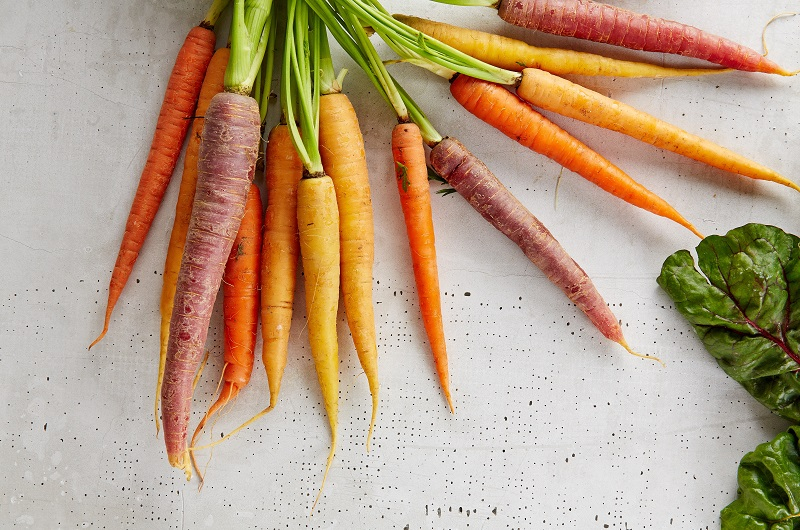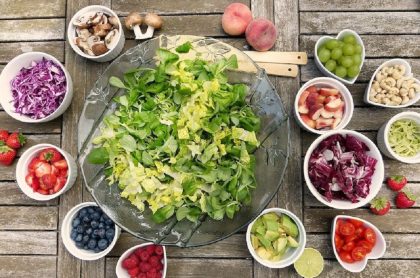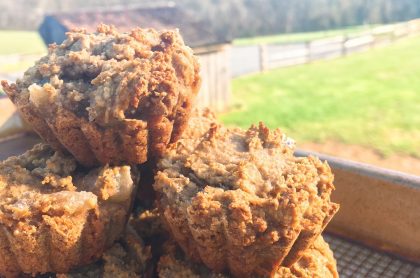Why do we have the impulse to eat sweet food?


The desire for sweet food can hit us at any time – after lunch, out of nowhere in the middle of the day, and even sometimes even lasts all day. It makes us open cupboards or feel around in the drawers, and nearly every time we try to fight it we lose.
Where does this desire come from? What can we do to prevent it? Here are some of the most common reasons that can lead you to being caught off guard by your sweet cravings and what you can do about them.
Insulin
Usually, the desire for sweet food comes after a swift decline in blood sugar levels, or when there’s a problem in introducing sugar into the body’s cells. The main hormone involved here is insulin, and eating simple carbohydrates like sugar, white rice, white flour and juice can serve to increase this feeling. If our diet includes a lot of bread, pasta, cookies, juices (even natural) and baked goods, without including many vegetables and legumes, it’s likely that the desire for sweet foods is indeed due to a drop in blood sugar levels.
The solution is simply to reduce the amount of simple carbohydrates that we eat, especially sugar and flour. If we shift to eating whole foods such as whole grain rice and oats and add vegetables and legumes to our diet, we should be able to combat the impulse to eat something sweet.
You’re hungry for something quick and sweet
You know that feeling when you want to eat something now? We automatically think of eating something that’s available and which our brain remembers gives us energy – sugar, thus creating the impulse to eat sweet things.
In this case, it’s possible that you’ve been going too long between meals, and the solution is simply to eat something once every two or three hours – even something small like a piece of fruit or nuts. The main consideration is not to reach a high level of hunger, because then the body rightfully demands something sweet.
Stressful situations
When we’re under pressure or stressed our nervous system doesn’t waste time thinking about building up our body through vegetables and nutritious foods, and in fact, nutrition is pretty much dead last on its list of priorities. The body feels the need to survive, and that’s to where our nervous system diverts its attention.
So what can we do? After all, our lives are full of pressure and it’s not always possible to eliminate its sources. However, it is possible to learn to deal with pressure and understand that the desire for something sweet comes from there. With this understanding, the next time we have the choice of snacking on a croissant or a plate of vegetables, we’ll choose the vegetables.
The variety of tastes in a meal
Our brain understands how to identify flavors and allocate them to food groups. For example, it allocates salt to protein and minerals. In order for our body feel that it is getting its nutritional needs, our brain looks to fill in the gaps for missing nutrients. If we’ve eaten a meal that is salty, our brain will look for other flavors to supplement, especially sweet ones.
Therefore, one should eat meals that include a full variety of flavors that complement each other in harmony. Adding salt and sugar to each dish will bring out flavors that might be too strong and will only amplify the lack of balance that the brain feels. It’s a good idea to combine foods that offer a variety of flavors, such as green leaves (which tend to be bitter), carrots and sweet potatoes (which tend to be sweet) and lemons (which are sour). This type of meal will reduce the impulse to snack on sweet foods, which might follow an unbalanced meal.

Let’s sum it up
- Balance the amount of available sugar during a meal (mainly via reduction of flour and sugar) to balance insulin levels.
- Eat every two or three hours to avoid feeling very hungry.
- Understand that the desire to eat sweet foods comes during moments of stress and pressure.
- Build a meal with a variety of harmonious flavors.
I hope that you’ve managed to understand why you feel the need to eat sweet food impulsively and that in the future these mechanisms will help you to cope!
Similar articles
-
Discover the power of conscious deep breathing on your health
inBreathing is something the body does without any conscious effort, but the power of conscious deep breathing is definitely no joke!
-
Adaptability is the real way to reduce stress
inI just can’t stand hearing the word ‘stress’ anymore – nearly every health problem is connected to stress and doctors and patients alike both talk about it. In this article, we’re going to discuss how to reduce stress
-
Part 2: Irritable Bowel Syndrome (IBS)? Kimsey to the rescue!
inNow that we’ve discussed how to tell if you’re suffering from IBS and what might be causing it, we’ll take a look at the risk factors leading to the illness and some of the best IBS treatment, both natural and conventional.
More in Nutrition
-
Shouldn’t I be losing weight on a plant-based diet?
inLots of people who have recently transitioned to a plant-based diet have been asking, “shouldn’t I be losing weight on a plant-based diet?”
-
Your health destiny is not your child’s health destiny
inAre you thinking about having kids, but have poor health yourself? Do you want to give your child a better health destiny than your own?
-
Gut-friendly muffins when you’re stuck at home
inGut-friendly muffins can be just the thing to bake when you’re stuck at home during these difficult times.















